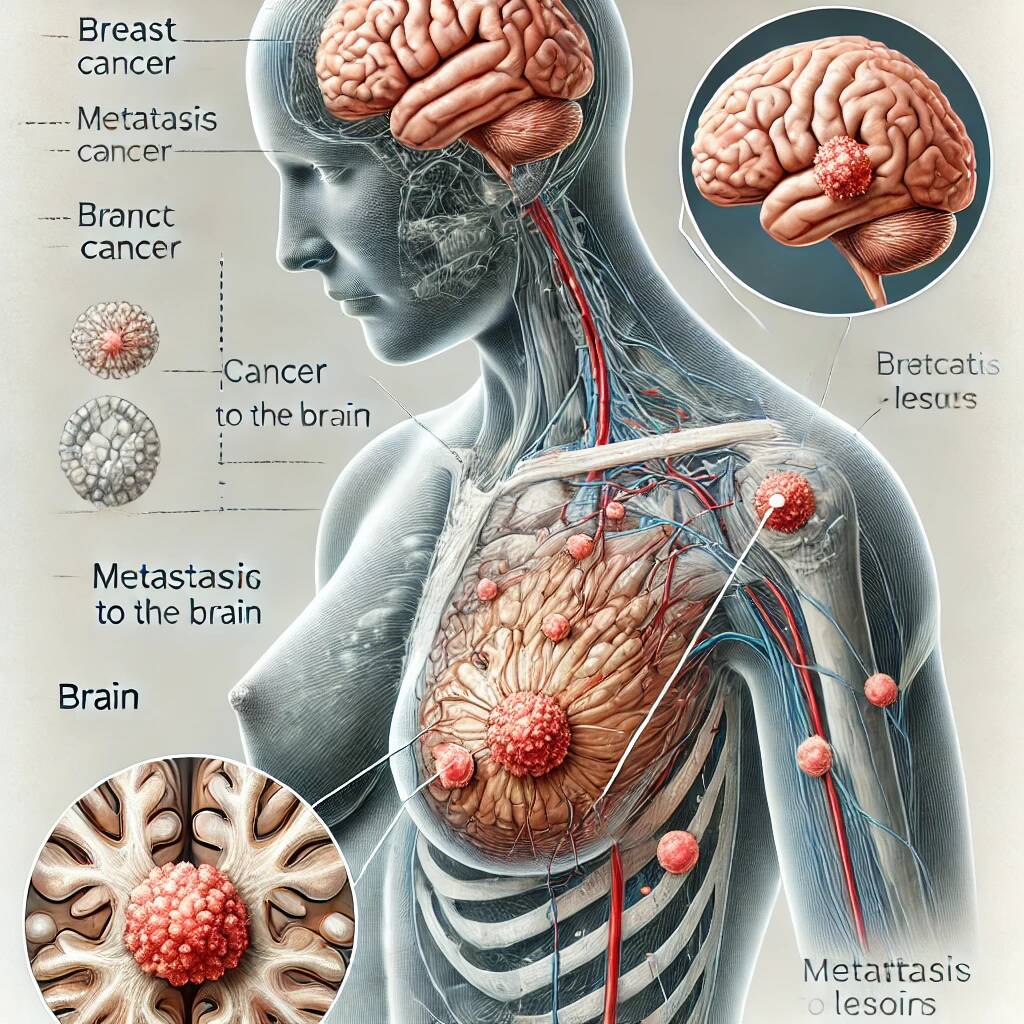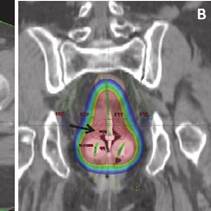




Cancer has long been considered a disease primarily affecting older individuals. However, recent studies and statistics paint a troubling picture: cancer cases among young adults aged 20 to 39 are on the rise worldwide. This shift challenges traditional assumptions and raises urgent questions about the factors driving this unsettling phenomenon.


How Breast Cancer with Brain Metastasis is Treated
Breast cancer can sometimes spread to other parts of the body, including the brain, in a condition called brain metastasis. While this can sound overwhelming, advancements in medical science offer multiple treatment options, providing hope and better outcomes for patients.
When breast cancer cells travel to the brain, they form metastatic tumors. Symptoms may include headaches, memory problems, dizziness, or even seizures. Early diagnosis is crucial for effective treatment and improving quality of life.
Treating breast cancer with brain metastasis requires a multidisciplinary approach. The treatment depends on the number, size, and location of tumors, as well as the patient’s overall health and preferences. Here's an overview of common strategies:
Surgery:
Radiation Therapy:
Targeted Therapy:
Systemic Therapy:
Supportive Care:
In recent years, clinical trials have introduced promising therapies, including novel drugs and advanced imaging techniques for precise treatment planning. Patients are encouraged to discuss ongoing trials with their oncologists.
Every patient’s condition is unique. A personalized treatment plan is essential, crafted by a team of specialists such as oncologists, neurosurgeons, and radiologists.
With modern therapies, many patients manage brain metastasis effectively, maintaining a good quality of life. Early detection and regular follow-ups are key.
If you or someone you know is dealing with breast cancer with brain metastasis, reach out to a specialist. Remember, you’re not alone—support and advanced care are available.
Stay informed. Stay empowered.
Brachytherapy: Overview and Benefits for cancer patients
What is Brachytherapy?


 Brachytherapy is a form of internal radiation therapy where radioactive sources are placed directly inside or near a tumor. It delivers a high dose of radiation to the target area while sparing surrounding healthy tissues.
Brachytherapy is a form of internal radiation therapy where radioactive sources are placed directly inside or near a tumor. It delivers a high dose of radiation to the target area while sparing surrounding healthy tissues.
Uses of Brachytherapy



Brachytherapy is commonly used in the treatment of various cancers, including:
Advantages of Brachytherapy
How is Brachytherapy Clinically Performed?
Brachytherapy Services in Hubli
DR. M G Giriayappagoudar Anvita Onco Clinic, located on Gokul Road, Hubli, offers expert cancer care and guidance. Patients can also check with advanced oncology centers in nearby cities for specialized brachytherapy services.
How Cancer Patients Benefit from Brachytherapy
Patients are encouraged to consult a qualified oncologist to evaluate if brachytherapy is the right treatment for their condition. At Anvita Onco Clinic, Located on Niramaya Medical Centre Gokul Road, Hubli, we provide expert consultations and guide patients to appropriate facilities offering brachytherapy.

A multidisciplinary tumor board is a team of experts from various medical fields, including oncologists, radiologists, surgeons, pathologists, and other healthcare professionals. They collaborate to review and discuss a patient’s medical history, imaging, pathology reports, and other diagnostic data to formulate a tailored treatment plan.
Personalized Treatment Plans:
By integrating diverse perspectives, the tumor board ensures a well-rounded approach, tailoring treatment to the patient’s unique needs, preferences, and medical history.
Accurate Diagnosis:
Misdiagnosis or delayed diagnosis can have dire consequences in cancer treatment. The collective expertise of the tumor board minimizes the risk of errors, ensuring an accurate understanding of the disease stage and type.
Timely Decision-Making:
Cancer treatment is often time-sensitive. Multidisciplinary discussions streamline the decision-making process, enabling timely initiation of therapy.
Access to Latest Advances:
Specialists in a tumor board stay updated on the latest treatment protocols, clinical trials, and innovations, ensuring patients receive the most advanced care options.
Improved Survival Rates:
Studies show that patients managed through tumor boards have better outcomes, including improved survival rates and quality of life.
At Tumor Board, we simplify the process for cancer patients seeking a second opinion. Here's how it works:
Cancer treatment is complex, often requiring the combined expertise of multiple specialists to ensure the best outcomes for patients. This is where a multidisciplinary tumor board plays a vital role. At Tumor Board, we take pride in offering comprehensive second opinions for cancer patients through our innovative online and offline services, led by Dr. M.G. Giriyappagoudar, a distinguished oncologist with years of experience in cancer care.
Cancer care is a journey, and having the right team by your side can make all the difference. A multidisciplinary tumor board combines expertise, compassion, and advanced tools to deliver better outcomes. At Tumor Board, we are committed to supporting patients at every step, offering clarity, confidence, and hope in their fight against cancer.
Take the first step towards personalized cancer care. Visit Tumor Board today to get your second opinion!